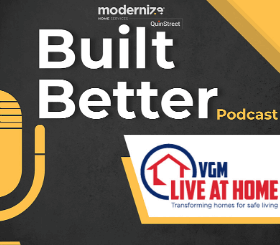
As a contractor, finding the balance between profit and positive customer relationships can be tricky if you own your own business. Of course, you know that there are many factors that go into creating an estimate for a home improvement project, and that no two jobs are exactly the same. Fortunately, there are plenty of ways to strike a balance by giving your clients an accurate and fair price without compromising on costs. Here are top dos and don’ts for creating estimates.
Be accurate
Estimates are essential tools for contractors, and not only because they outline the specific costs of a project for potential clients. These figures are also useful for your records because they help shape your future estimates. That’s why it’s so important to include everything that you view as a cost for each project. Some of the most common costs include:
- Materials
- Labor
- Miscellaneous costs, including:
- Building permits
- Administrative and other fees
- Rental vehicles and equipment
Methodically listing and pricing each individual cost—or stick estimating, as it’s called in the industry—is a common way of accurately estimating a building project. However, it can be very time consuming. Some contractors now prefer to estimate by using unit costs instead, while others make use of construction estimating software to make the job even quicker and easier.
If you opt for the high tech route, we recommend checking out a variety of programs and choosing one that suits you and your business best. If you need help choosing, other construction pros love the estimation software from companies such as BuilderTREND, Quick Bid, Sage Estimating, and Procore.
Whichever estimation method you choose, remember that accuracy is key. Ballpark figures aren’t good enough here; although it is just an estimate at the end of the day, your past projects will provide enough information to help you produce an estimate that is right on the money (so to speak!).
Be honest
If there is one thing more important to your customers than a good price, it’s honesty. This applies to the entire process of a building project, of course, but is particularly useful to remember when producing estimates for potential clients. If, for whatever reason, you decide to quote a price that is much lower than you actually anticipate, know that your decision will become evident sooner or later.
While under-estimating may secure a new lead and boost your clientele initially, rising costs throughout the course of the building project will soon become apparent. Once your client knows that the price you quoted isn’t exactly accurate, you will lose their trust and, most likely, their business. A positive client-professional relationship is more important than a high profit margin at the end of the day, because happy clients will be more likely to become repeat customers who give you great reviews and more business.
Be professional
In any business, professionalism goes a long way towards creating a brand that is both reputable and successful. For contractors, staying professional during the estimation process means:
- Being honest – By following the recommendations outlined above, you will be able to provide your clients with an accurate and honest estimate for their home improvement work.
- Keeping a paper trail – Always provide written estimates for your clients to look over (it’s also a good idea to keep a copy on file for future reference).
- Communicating your costs – Arrange a meeting to discuss a breakdown of your estimate with your clients, taking time to answer any questions or concerns they may have about the itemized prices.
If, after costing a project for a potential client, you feel like you can’t commit to the expenditure, service, or time scale required, let them know as soon as possible. Part of your job as a contracting professional is making sure you are the right person for the job, so if it turns out you aren’t, your clients will understand and appreciate your honesty.
Producing an estimate for every construction job you undertake may sound time-consuming and monotonous, but the benefits far outweigh the drawbacks. If your estimates are accurate, truthful, and clear, you will establish a positive relationship with new customers from the very beginning. This transparency will be appreciated by your leads and stand you and your business in good stead for a financially viable and successful future.
Types of Leads We Offer:
Home Improvement Leads for Contractors
Replacement Window Leads Generation

















